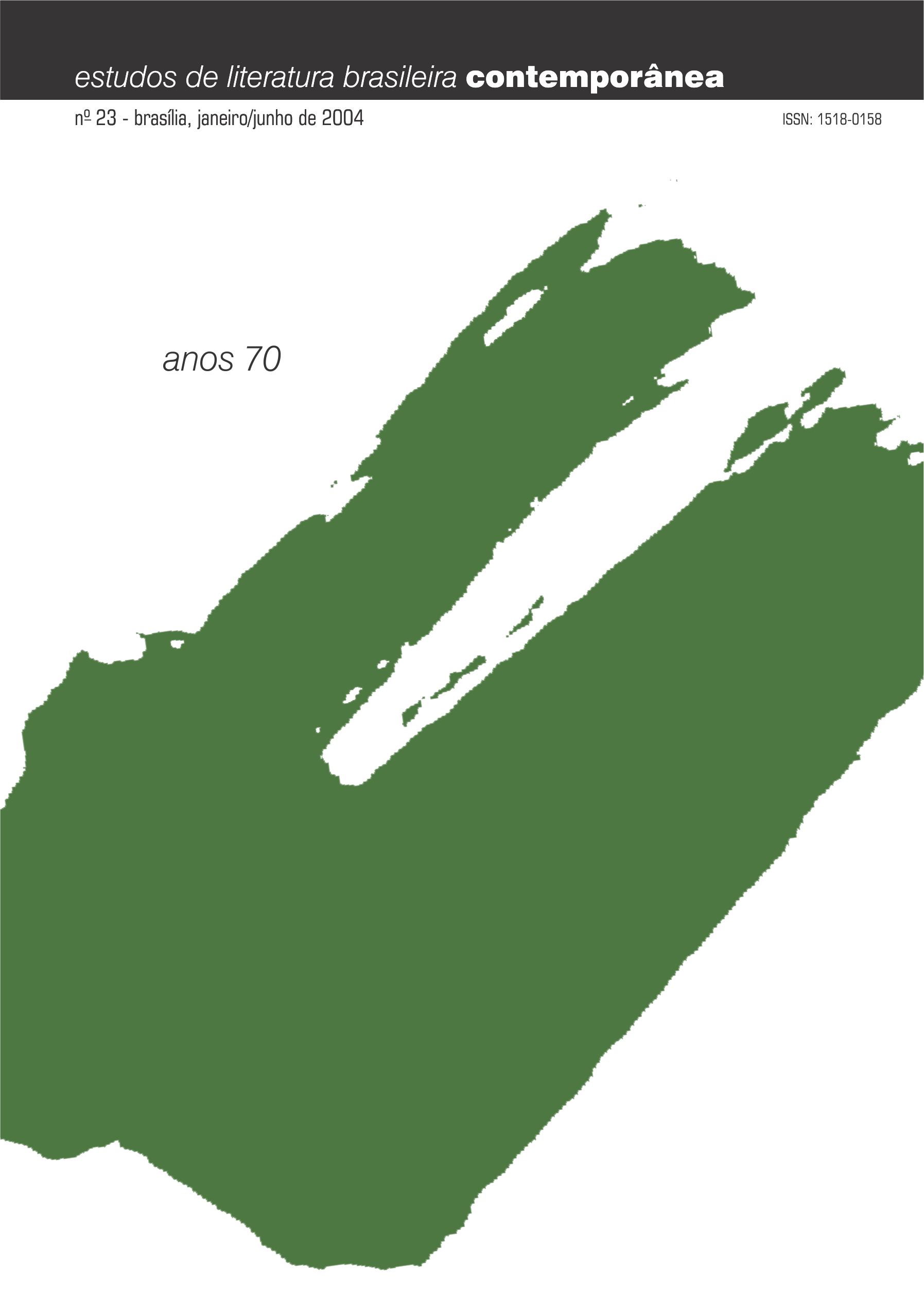Uma sociedade do olhar:
reflexões sobre a ficção brasileira
Abstract
O texto reflete sobre a questão do olhar na sociedade lobalizada do fim do século XX, através do comentário de quatro romances (ficção-limite seria um termo melhor, pelo caráter de “estranhamento” que o modelo romanesco neles recebe) brasileiros publicados na década de 1980:
Balada da infância perdida, de Antônio Torres, Em liberdade, de Silviano Santiago, Bandoleiros, de João Gilberto Noll e, finalmente, A tragédia brasileira, de Sérgio Sant’Anna.
References
BENJAMIN, Walter. “O narrador”, em Walter Benjamin e outros. Textos escolhidos. São Paulo: Abril Cultural, 1983, pp. 29-56.
ª. BIENAL INTERNACIONAL DE SÃO PAULO. São Paulo: Fundação Bienal de São Paulo, 1987. (Catálogo)
CLAUDIO, Mário. Amadeo. Lisboa: Imprensa Nacional/Casa da Moeda, 1984.
NOLL, João Gilberto. Bandoleiros. Rio de Janeiro: Nova Fronteira, 1985.
SANT’ANNA, Sérgio. A tragédia brasileira. Rio de Janeiro, 1987.
SANTIAGO, Silviano. Em liberdade. Rio de Janeiro: Nova Fronteira, 1981.
””””””. “O narrador pós-moderno”, em Revista do Brasil, Rio de Janeiro, Prefeitura do Município do RJ, 5: 4-13, 1986.
SARAMAGO, José. O ano da morte de Ricardo Reis. Lisboa: Caminho, 1984.
SEIXO, Maria Alzira. A palavra do romance: ensaios de genealogia e análise. Lisboa: Livros Horizontes, 1986.
TORRES, Antonio. Balada da infância perdida. Rio de Janeiro: Nova Fronteira, 1986.
Downloads
Published
Issue
Section
License
Authors who publish in this journal agree to the following terms:
a) The authors maintain the copyright and grant the journal the right of first publication, the work being simultaneously licensed under the Creative Commons Attribution License-Non Commercial 4.0 which allows the sharing of the work with acknowledgment of the authorship of the work and publication this journal.
b) Authors are authorized to enter into additional contracts separately, for non-exclusive distribution of the version of the work published in this journal (eg publish in institutional repository or as a book chapter), with authorship recognition and publication in this journal.
c) Authors are allowed and encouraged to publish and distribute their work online (eg in institutional repositories or on their personal page) after the editorial process, as this can generate productive changes, as well as increase the impact and citation of published work (See The Effect of Free Access).
d) The authors of the approved works authorize the magazine to, after publication, transfer its content for reproduction in content crawlers, virtual libraries and the like.
e) The authors assume that the texts submitted to the publication are of their original creation, being fully responsible for their content in the event of possible opposition by third parties.


